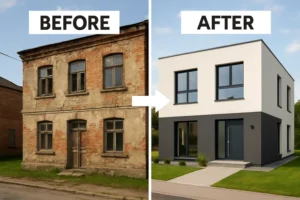Are you tired of skyrocketing energy bills and the constant guilt of contributing to environmental degradation? Look no further than energy-efficient water heaters – the unsung heroes of sustainable living. By making a simple switch, you can save money, reduce your carbon footprint, and enjoy a warm shower with a clear conscience.
Choosing the right energy-efficient water heater for your needs is a crucial decision that can have long-lasting impacts on your household expenses and the environment. With a myriad of options available in the market, it’s essential to navigate through the maze of energy ratings, fuel types, and installation requirements to find the perfect fit for your unique circumstances.
Overview
In today’s world, where energy conservation and environmental stewardship are at the forefront of public consciousness, investing in an energy-efficient water heater is not just a smart financial decision but also a responsible choice for our planet’s future. These innovative appliances have the potential to significantly reduce your household’s energy consumption, lower your utility bills, and contribute to a more sustainable way of living.
This comprehensive guide will delve into the key factors to consider when selecting the right energy-efficient water heater for your needs. From understanding the different types and their energy-saving capabilities to assessing your household’s unique requirements, we’ll equip you with the knowledge to make an informed decision that aligns with your environmental values and financial goals.
Understanding Energy-Efficient Water Heaters
Energy-efficient water heaters are designed to optimize energy usage and minimize waste, resulting in lower operating costs and a reduced environmental impact. These cutting-edge appliances employ various technologies, such as improved insulation, advanced heating elements, and innovative heat transfer mechanisms, to achieve superior energy efficiency compared to traditional water heaters.
The market offers a diverse range of energy-efficient water heaters, each with its unique strengths and considerations. Tankless (on-demand) water heaters, for instance, heat water only when needed, eliminating standby energy losses. Heat pump water heaters utilize the ambient air temperature to heat water, making them highly efficient and eco-friendly. Solar water heaters harness the power of the sun, providing a sustainable and renewable source of hot water.
Investing in an energy-efficient water heater not only saves you money on utility bills but also contributes to a greener and more sustainable future. By reducing your household’s energy consumption, you actively participate in mitigating greenhouse gas emissions and preserving natural resources for generations to come.
Factors to Consider When Choosing a Water Heater
Selecting the right energy-efficient water heater for your home requires careful consideration of several key factors. First and foremost, it’s crucial to assess your household’s capacity requirements based on the number of occupants and typical water usage patterns. A water heater that is too small will struggle to meet your hot water demands, while an oversized unit can lead to energy waste and higher operating costs.
Another critical factor to consider is the energy efficiency rating and industry certifications. Look for models with high Energy Factor (EF) or Uniform Energy Factor (UEF) ratings, as these indicate superior energy efficiency. Additionally, certifications such as ENERGY STAR® can provide valuable guidance in identifying top-performing products.
The fuel type of the water heater is also an important consideration. While electric water heaters are widely available and relatively inexpensive to install, they may not be the most cost-effective option in areas with high electricity rates. In such cases, natural gas or propane-powered water heaters could be a more economical choice. Alternatively, solar water heaters or heat pump water heaters may be viable options, depending on your location and climate.
Finally, it’s essential to factor in the installation and maintenance requirements for different types of water heaters. Some models may require special venting or plumbing modifications, while others may have specific maintenance needs to ensure optimal performance and longevity.
“Choosing the right energy-efficient water heater is not just about saving money, it’s about making a sustainable choice for the environment.”
Comparing Energy-Efficient Water Heaters
To help you make an informed decision, we’ve compiled a comprehensive table comparing the features and specifications of popular energy-efficient water heater models:
| Model | Type | Capacity | Energy Factor (EF) or Uniform Energy Factor (UEF) | Fuel Type | Estimated Annual Energy Cost | Key Features |
|---|---|---|---|---|---|---|
| [Model A] | Tankless (On-Demand) | Up to 9.8 GPM | 0.96 UEF | Natural Gas | $180 | Compact design, endless hot water supply, advanced temperature control |
| [Model B] | Heat Pump | 50-80 gallons | 3.5 EF | Electric | $320 | Highly efficient, uses ambient air for heating, ENERGY STAR® certified |
| [Model C] | Solar | 60-120 gallons | 2.5 EF | Electric (with solar backup) | $180 | Renewable energy source, long lifespan, eligible for tax credits |
| [Model D] | Condensing | 40-60 gallons | 0.80 UEF | Natural Gas | $250 | Captures and reuses exhaust heat, compact design, eco-friendly |
Selecting the right size and capacity is crucial for optimal energy efficiency. An undersized water heater will struggle to meet your hot water demands, leading to increased energy consumption, while an oversized unit will waste energy by continuously reheating water unnecessarily.
Tips for Maximizing Energy Efficiency
While choosing an energy-efficient water heater is a significant step towards sustainable living, there are additional measures you can take to further enhance your energy savings and environmental impact:
- Insulate your water heater and pipes: Proper insulation helps reduce heat loss, ensuring that your water heater operates more efficiently and minimizes energy waste.
- Set the temperature to an optimal level: Most households can comfortably set their water heater temperature to around 120°F (49°C). Higher temperatures not only increase energy consumption but also pose a risk of scalding.
- Regular maintenance and servicing: Like any appliance, regular maintenance and servicing are essential for ensuring your water heater operates at peak performance and efficiency. Follow the manufacturer’s recommendations for routine maintenance tasks, such as flushing the tank or replacing sacrificial anodes.
By implementing these simple tips, you can maximize the energy efficiency of your water heater and further contribute to a more sustainable lifestyle.
Understanding the Cost and Savings
Investing in an energy-efficient water heater may require a higher upfront cost compared to traditional models, but the long-term savings on utility bills can offset this initial investment. According to the U.S. Department of Energy, water heating accounts for approximately 18% of a household’s energy consumption. By switching to an energy-efficient model, you could save hundreds of dollars annually on your energy bills.
For example, let’s compare the potential cost savings between a standard electric water heater and an energy-efficient heat pump water heater over a 10-year period:
- Standard Electric Water Heater:
- Initial Cost: $500
- Annual Energy Cost: $600
- Total Cost over 10 Years: $6,500
- Energy-Efficient Heat Pump Water Heater:
- Initial Cost: $1,500
- Annual Energy Cost: $300
- Total Cost over 10 Years: $4,500
In this scenario, the energy-efficient heat pump water heater would save you approximately $2,000 over a 10-year period, despite the higher initial cost. Additionally, many energy-efficient models qualify for tax credits and rebates, further reducing the overall investment.
Conclusion
Choosing the right energy-efficient water heater for your needs is a crucial decision that requires careful consideration of various factors, including capacity requirements, energy efficiency ratings, fuel type, and installation and maintenance needs. By taking the time to evaluate your household’s unique circumstances and exploring the available options, you can make an informed choice that not only saves you money but also contributes to a more sustainable and eco-friendly future.
Remember, investing in an energy-efficient water heater is a long-term commitment that will pay dividends in the form of lower utility bills, reduced environmental impact, and the satisfaction of doing your part in preserving our planet’s resources. Embrace the opportunity to make a positive change, and enjoy the warmth of hot water while keeping your carbon footprint in check.



